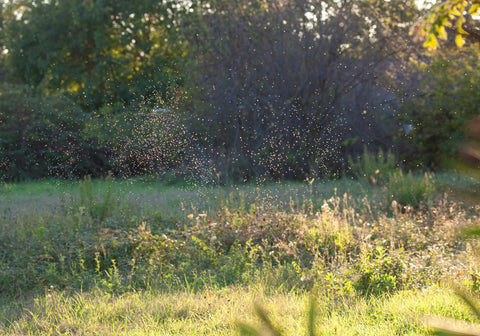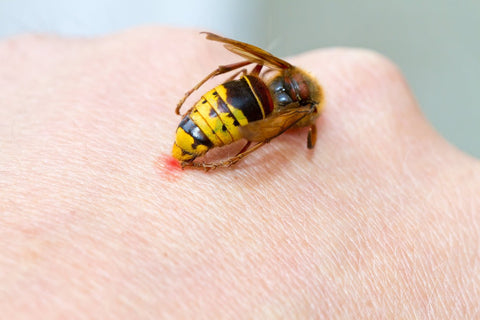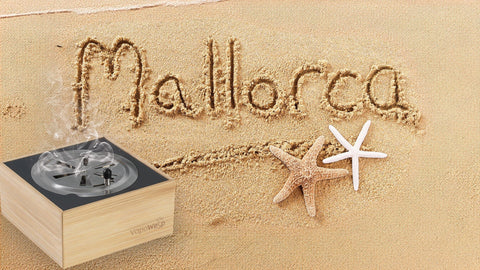Lake Constance – Between Natural Beauty and a Growing Mosquito Problem
Lake Constance, known for its picturesque landscapes, charming towns, and countless leisure activities, has faced a growing challenge in recent years: a mosquito infestation. These tiny but persistent insects are not only a nuisance for locals – they’re also starting to impact tourism and the regional economy.
The Mosquito Menace
Mosquitoes – commonly referred to as “gnats” in the region – have always been a source of annoyance in many parts of the world. But in recent years, their numbers around Lake Constance have increased significantly.
Several factors contribute to this rise:
- Climate change: Warmer temperatures and milder winters help mosquitoes reproduce more quickly.
- Changing environmental conditions: Standing water and wetlands create ideal breeding grounds.
- Invasive species: Global trade and tourism have brought exotic mosquito species to the area that are harder to control.
These combined factors have led to a real mosquito problem – one that’s not just annoying but also poses health risks, as some mosquito species can carry diseases.
Impact on Tourism
Tourism is one of the most important economic drivers for the Lake Constance region. Every year, millions of visitors come to enjoy nature, water sports, and cultural events. But the growing mosquito issue has started to interfere with this positive trend.
Declining visitor numbers
In recent years, a noticeable drop in tourism has been recorded. Visitors often report unpleasant experiences with mosquito bites that negatively affect their stay. Many now avoid the region during peak summer months – exactly when mosquito activity is at its highest.
Negative reviews and word-of-mouth
With the rise of online reviews and social media, news about the mosquito issue spreads fast. Negative feedback on platforms like TripAdvisor and Google Reviews – often warning others about the mosquitos – has discouraged new visitors. Word-of-mouth has further damaged the region’s image.
Economic Consequences
The financial impact is substantial. Fewer tourists directly affect the revenues of hotels, restaurants, and leisure businesses. Indirect effects are also becoming evident:
Job losses
Many jobs in the tourism sector depend on a steady flow of visitors. Fewer tourists mean fewer hours or even layoffs for hospitality staff, service workers, and many others – leading to job insecurity across the region.
Reduced investment
Businesses heavily reliant on tourism are becoming hesitant to invest. Hotel renovations or new leisure projects are being postponed, which could further impact the region’s long-term attractiveness.
Mosquito control costs
Municipalities and private businesses are spending significant amounts on mosquito control – from chemical sprays to eco-friendlier solutions like introducing natural predators. These efforts are costly and strain local budgets.
How to Protect Yourself from Mosquitoes
- Despite the challenges, there are several ways for both locals and visitors to protect themselves and reduce mosquito presence:
- Wear long sleeves and pants: Covering skin offers basic but effective protection from bites.
- Use mosquito repellents: Topical sprays and creams can keep mosquitoes at bay.
- Install mosquito nets: Nets over beds or windows help keep sleeping areas bug-free.
- Eliminate standing water: Remove water buildup around homes and gardens to reduce breeding areas.
- Try VapoWesp as a sustainable solution: This biological method uses the smoke of burned coffee grounds to repel mosquitoes, offering an eco-friendly alternative to chemical repellents.
This traditional method is widely known and has been made user-friendly with the development of the VapoWesp incense box.
Solutions and Strategies for the Future
To tackle the mosquito problem and reinvigorate tourism, a multi-pronged approach is needed:
- Public awareness: Education campaigns can inform both locals and visitors about how to protect themselves and prevent bites.
- Eco-friendly mosquito control: Promoting natural predators like bats and certain bird species can help reduce mosquito populations naturally.
- Better infrastructure: Hotels and leisure venues can invest in mosquito barriers like nets and natural repellents to improve guest comfort.
- Technological innovation: Tools like VapoWesp, which repels mosquitoes with natural aromas, offer a sustainable and effective solution.
The mosquito issue at Lake Constance is a serious threat to tourism and the local economy.
Overcoming it will require a mix of smart control methods, public education, and investment in infrastructure. By working together – both locals and visitors – the region can protect itself and continue to thrive as one of Europe’s most beloved travel destinations.





